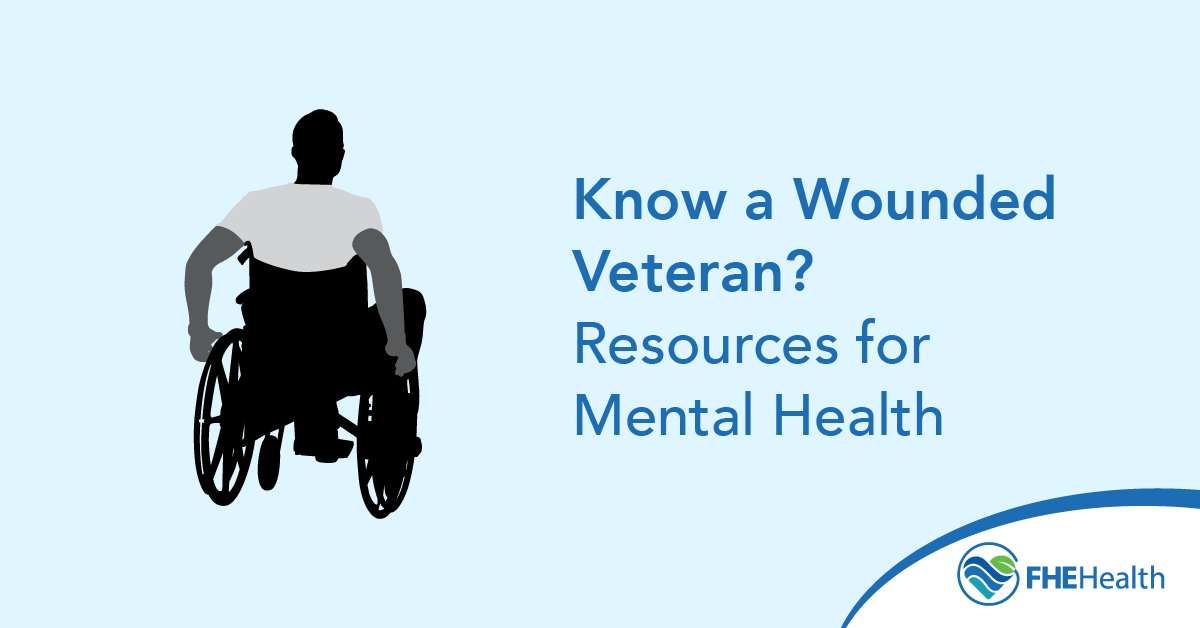
Regardless of branch, rank or deployment, veteran mental health issues can be as varied and complex as the demands placed on men and women in uniform. With depression and other concerning outcomes on the rise among service members, addressing military mental health — and supporting the nation’s 18 million veterans — is more important than ever.
Mental Health Challenges Faced by Wounded Veterans
While the camaraderie and support of a combat unit can help service members get through battle and other stressful events, healing afterwards can be challenging. The physical pain of wounds serves as a constant reminder of the events that caused them, and wounded vets often feel forced to deal with these issues alone. A 2024 article from the U.S. Department of Veterans Affairs highlights a tragic outcome of this situation: the loss of an average of 17 veterans each day to suicide.
Beyond the mental aspects of healing from war wounds, there are physical challenges for wounded vets. Simply moving around, doing everyday tasks or cleaning and maintaining their home may feel like a battle on its own. Compounding the issue is an emphasis on and pride in self-reliance that can make individuals hesitant to admit they need help.
Signs a Veteran May Be Struggling
A veteran in need of support may act in a way that contradicts their desperate need for assistance. They may become irritable or hostile, push away friends and family or withdraw from clubs, gatherings and other familiar routines. They may sleep more than usual or show little or no appetite when it’s time to eat. Other concerning behaviors can include giving away sentimental items in bulk or avoiding talking about the future, even in the short term.
Failure to keep appointments is another common red flag that a veteran’s mental health stability might be at risk. When someone comes from a career that emphasizes and values consistency and responsibility, skipping checkups and appointments is an indicator that they might be struggling to “right the ship” and need professional support to do so.
VA and Non-VA Mental Health Resources
While the U.S. Department of Veterans Affairs has a robust network of health centers, programs and resources, the locations are often inundated or understaffed. While all holistic care for wounded veteran mental health should incorporate local VA centers when possible, it’s important to be pragmatic when it comes to scheduling. If there’s an immediate veteran mental health crisis, it’s better to address it with the fastest available professional, center or group rather than waiting for a VA opening.
In many cases, the VA center itself will partner with a local civilian mental health provider to address overflow and lack of appointment availability. If a veteran is already enrolled in the VA health care system, it’s a good idea to proactively ask about partnered civilian resources and medical providers to prevent potential delays in care in the future.
Peer Support and Community-Based Programs
Military mental health is a unique problem, and some of the people best equipped to understand and handle it are those who’ve dealt with similar challenges themselves. Support groups for wounded veteran mental health concerns exist nationwide. You may find options via community resource centers like libraries and senior centers. If no local group is readily available, a veteran in need might consider starting a group of their own if they have the energy and ability to do so.
In crisis situations, veteran-specific hotlines are also available for immediate assistance. The VA maintains an informational web page with numbers and links for veterans who aren’t sure where to turn for help. These hotlines are staffed with volunteer vets who have firsthand experience with similar struggles, enabling potentially lifesaving rapport from the moment a vet calls in.
Helping Veterans Navigate Treatment Options
The best veteran mental health solution is one that works with and for the veteran. Factors like transportation availability, financial ability and appointment timing are vital to consider when setting up long-term treatment options. Even if a provider seems like an excellent fit, if they aren’t available for months and the veteran needs help now, another choice will need to be made.
For the best long-term results, veterans should connect with an advocate or care coordinator whenever possible. You can often connect with these individuals through veteran organizations or the VA health care network. They can help arrange feasible approaches that work within a veteran’s existing resources and abilities. In addition to finding a provider who’s the right fit in terms of personality, these coordinators can also assist with additional concerns, such as transportation or applying for financial hardship programs when assistance with medical costs is needed.
Encouraging Connection and Long-Term Healing
Much like health care in general, tackling veteran mental health concerns is an ongoing process rather than a one-time solution. Periodic checkups are necessary to gauge mental health and wellness, and support measures like therapy groups, medications and specialist visits can also help ensure long-term success. In cases of talk therapy or group therapy, veterans may need time to come to terms with past experiences and professional guidance while they work to unpack and address traumatic incidents.
Wounded veteran mental health solutions can also be paired with physical therapy appointments and other medical visits. Providers familiar with healing physical trauma unique to military members also understand the mental struggles that accompany the process. Additionally, there’s a strong likelihood that other veterans are visiting the same offices with similar injuries, making it relatively simple to find fellow wounded veterans to chat and bond with.
If you need support for veteran mental health, the professional and caring staff of FHE Health is here for you 24 hours a day, 7 days a week. Contact us to set up your initial appointment and let us serve you the way you’ve bravely served our country.






